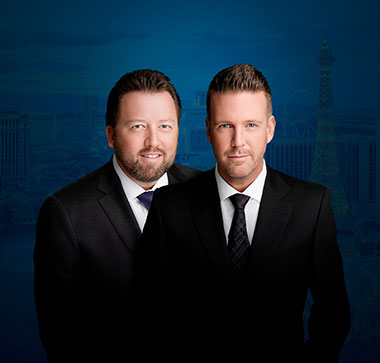The reasonable person standard is the standard by which the law deems negligent conduct. It looks at a person’s conduct and asks, “Would a reasonable person do this and consider it safe?”
If the answer is no, then the law considers the defendant’s actions or inactions negligent. Both tort law and criminal law use the reasonable person definition to determine negligence.
When the Court Does Not Use the Reasonable Person Test

What Is Negligence?
When someone acts negligently, his or her conduct is not what would be expected of a reasonable person who finds himself in the same circumstances. For example, a reasonable person would not read a book while driving down the highway. Because a reasonable person would not do this, someone that did would be held negligent.
However, in some cases, people might behave in a certain way that is against the law, but courts could still find them negligent. For example, many cities have laws that require you to yield to people in crosswalks. The majority of drivers do not yield; however a court might still hold a person who hits a pedestrian in a crosswalk negligent because the law is well known, yet, the person ignored the law just like everyone else.
Negligence or Intentional Tort?
The court draws what might seem to be a fine line between negligence and an intentional tort. If a plaintiff is suing for negligence, he or she has to prove that the defendant’s actions were not those of a reasonable person.
If the plaintiff is suing because he or she believes the defendant committed an intentional tort, the plaintiff must prove that the defendant acted intentionally with the knowledge that the defendant’s actions would harm the plaintiff. The difference is intent. For example, a drunk driver who caused an accident that resulted in severe injuries most likely did not intentionally cause the accident and most definitely did not intend to cause injuries because of his or her behavior.
On the other hand, a defendant who commits battery commits an intentional tort. He or she meant to cause harm and knew their actions would cause harm; for instance, if a plaintiff hit someone with a cast-iron skillet. Those who commit intentional torts may also be held accountable by facing criminal charges.
What Courts Look at When Determining Reasonableness
The court cannot say that because most of the population would not commit a negligent action that others are automatically negligent. The court looks at the following when determining if a person’s actions fall under the reasonable person standard:
Knowledge and Experience
As hinted at above, the court does take your knowledge and experience into play when determining whether a person’s actions are negligent. If a person does not know that driving through a crosswalk is illegal (someone should know this if driving) because they had been driving for less than a week, the court might not consider their actions negligent. However, if a person who has been driving for 30 years drives through a crosswalk and hits a pedestrian, the court will most likely find that person’s actions negligent.
Mental Capacity
Pleading reduced mental capacity is not usually a defense against negligence. For example, a drunk driver cannot blame alcohol for a drunk driving accident.
Age
The court does not hold a child to the same standards under the reasonable person test as an adult. Instead, the court uses other children of the same age to determine if the child’s actions were negligent. However, if a child is engaged in an adult activity, such as driving a vehicle, the court uses the reasonable person standard test for adults.
Special Skills
We mentioned special skills above when we spoke of a doctor. The court might hold people in other industries to a higher standard. Those industries might include aviation, the legal profession, architects, and others who need licenses to practice in their industry. However, if a person does not have a license, for example, to pilot a plane, but does, the court measures their actions against other pilots to determine if those actions were negligent.
Additional Situations
The court will also look at physical characteristics. For example, a blind person shouldn’t be driving, but the court will measure the person’s actions against sighted drivers if they do. It would find that a blind person driving is negligent.

If a person makes a judgment error in an emergency, the court could deem that the person was not negligent if it determines the person’s actions were reasonable in those specific circumstances. However, the person does have to guard against these emergencies. For example, allowing children to swim unattended would be negligent behavior even though the person saved a child from drowning.
Finally, third-party conduct has an impact on whether a court finds a person’s actions negligent. A bad driver may cause a truck accident in Las Vegas, but if a trucking company knowingly hired that trucker despite a bad driving record, or failed to train or discipline the trucker, that trucking company may also bear liability.
If you believe someone’s negligent behavior caused your injuries, a free consultation with an experienced personal injury lawyer can answer any questions you have about seeking compensation.

